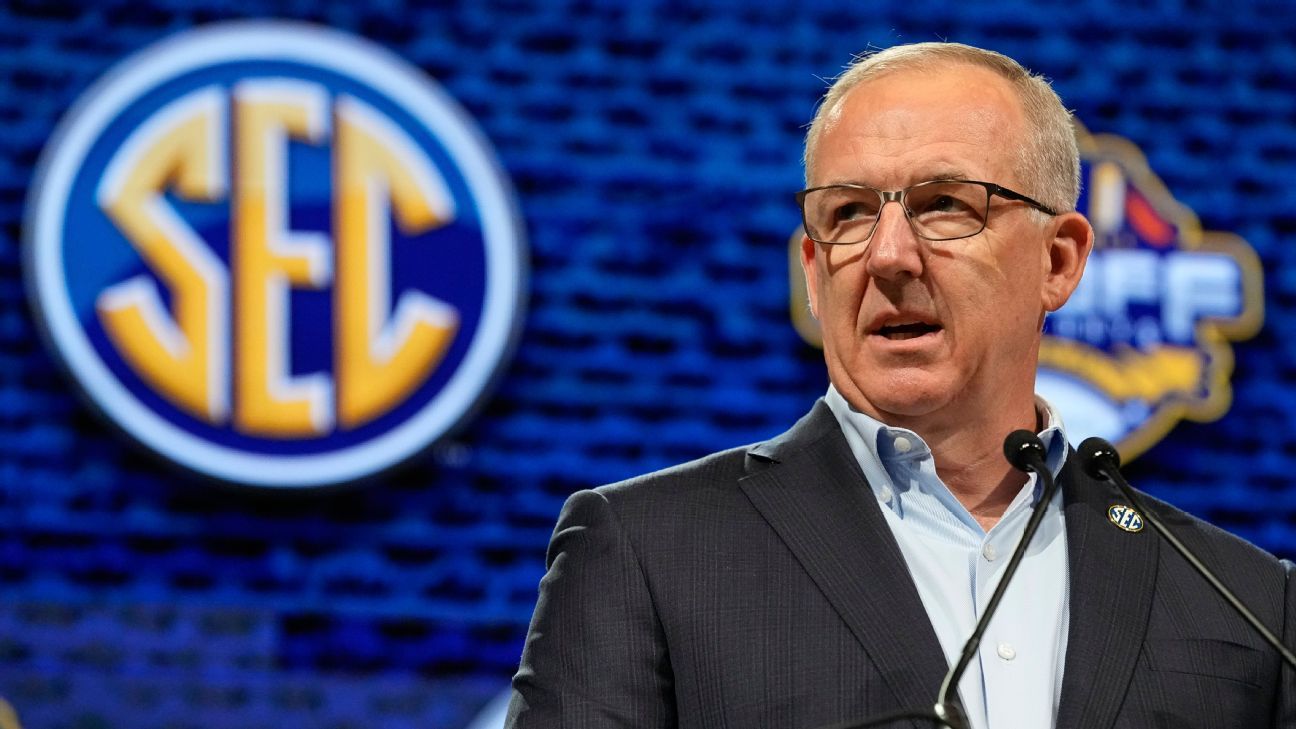URGENT UPDATE: The Southeastern Conference (SEC) is calling on the NCAA to rescind a controversial rule change that would permit athletes and staff to bet on professional sports, set to take effect on November 1, 2023. SEC Commissioner Greg Sankey delivered a strong message in a letter to NCAA President Charlie Baker on October 25, emphasizing that this policy shift is a “major step in the wrong direction.”
The NCAA’s Division I Cabinet approved the betting rule, which would allow collegiate athletes to engage in betting on professional sports. This decision has sparked immediate backlash from the SEC, with Sankey stating, “The message of our Presidents and Chancellors was clear and united.” The SEC leaders argue that allowing such activity threatens the integrity of collegiate sports, particularly as the gambling landscape continues to evolve.
If enacted, this rule represents a significant departure from longstanding NCAA policy, which has been increasingly difficult to enforce amid a surge in legal sports betting across the U.S. Recent data show a troubling rise in alleged betting violations among players, with the NCAA currently investigating 13 players from six schools for potential integrity issues related to gambling.
In September, a Fresno State men’s basketball player was implicated in a scandal for manipulating his performance for betting purposes, highlighting the grave concerns surrounding athlete involvement in gambling. Sankey’s letter appeals for the NCAA to reconsider, stating, “If there are legal or practical concerns about the prior policy, those should be addressed through careful refinement—not through wholesale removal of the guardrails.”
During the NCAA’s announcement of the rule change on October 22, officials reiterated that this move does not endorse sports betting for student-athletes. Roberta Page, chair of the Division II Management Council, stated, “Our action reflects alignment across divisions while maintaining the principles that guide college sports.”
However, Sankey argues that the integrity of competition is compromised when individuals with insider access are allowed to gamble. He stresses the SEC’s commitment to protecting student-athletes from potential exploitation by the gambling industry, urging a return to the previous prohibitive policy.
As the clock ticks down to the rule’s potential implementation, all eyes are on the NCAA’s Division I Board of Directors to see if they will heed the SEC’s call and preserve the integrity of college athletics.
Developments are ongoing, and this issue is expected to evolve rapidly as both the NCAA and the SEC navigate the complexities of sports betting regulations. Stakeholders across the collegiate sports landscape are urged to stay informed as this critical situation unfolds.





































































